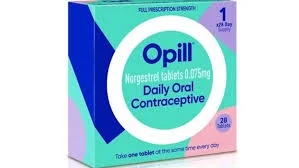Opill is a birth control pill that has been gaining popularity in recent years. Unlike traditional birth control pills, Opill does not require a prescription and can be purchased over-the-counter. This means that women can buy Opill without having to go through the hassle of visiting a doctor and obtaining a prescription. However, some insurance companies are not covering the cost of Opill without a prescription, which could make it more difficult for women to access this form of birth control.
The decision by insurance companies not to cover the cost of Opill without a prescription is based on several factors. One of the most significant concerns is the potential for misuse or abuse of the drug. Since Opill does not require a prescription, there is a risk that women may use it without consulting a healthcare provider or without fully understanding the risks and benefits of the drug. This could lead to unintended pregnancies, as well as other health consequences.
Another factor that insurance companies consider when deciding whether to cover the cost of a drug is its effectiveness. While Opill has been shown to be effective in preventing pregnancy, some insurers may be skeptical of its efficacy without a prescription. This could lead to insurers denying coverage for the drug, even though it has been shown to be a safe and effective form of birth control.
The decision by insurance companies not to cover the cost of Opill without a prescription is also a reflection of the ongoing debate over women's reproductive rights and access to healthcare. Some critics argue that insurance companies are making it more difficult for women to access birth control by requiring a prescription for Opill, which could lead to unintended pregnancies and other health consequences. On the other hand, supporters of the requirement argue that it is necessary to ensure that women are using the drug safely and effectively, without risking their health or well-being.
Regardless of the reasons behind the decision, the fact remains that some insurance companies are not covering the cost of Opill without a prescription. This could have significant implications for women's access to birth control, particularly for those who may not have easy access to healthcare providers or who may be unable to afford a prescription. It also raises questions about the role of insurance companies in determining access to essential healthcare services, particularly for women.
In conclusion, the decision by insurance companies not to cover the cost of Opill without a prescription is a complex issue that reflects the ongoing debate over women's reproductive rights and access to healthcare. While there are valid concerns about the potential for misuse and abuse of the drug, denying coverage for Opill without a prescription could make it more difficult for women to access this form of birth control. Ultimately, it is up to policymakers, healthcare providers, and insurers to work together to ensure that women have access to safe, effective, and affordable birth control options.
